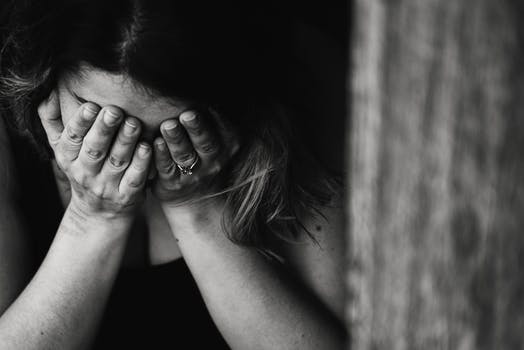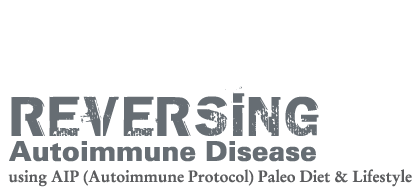The 5 Stages of Grief if you are Newly Diagnosed with Autoimmune Disease
Are you struggling with grief?
There are so many books, articles, blog posts and videos on what to do if you are diagnosed with an autoimmune disease. I even mean from the likes of the Functional Medicine/ Ancestral Health/ Paleo moment world, the world to which I belong. There is tons of advice on diet, a shopping list of suggestions about supplementation, long lists of lab testing you should do, a recipes list of things to avoid and things to buy. That is important too. But what about how you feel? What about your grief at discovering this diagnosis?
There is one thing though that is often overlooked completely. That is the emotional impact that being diagnosed with a chronic illness may cause!

There are so many emotions that may come along with your new found reality of having an autoimmune disease! Everything from grief, to anger, frustration, even denial.
Yes, being diagnosed with a chronic illness, for which technically there is no cure, will lead to intense feeling of grief and sadness. That is completely normal. There are 5 stages to grief, denial, anger, bargaining, depression and acceptance as outlined by author Elizabeth Kubler-Ross. As you go through these stages, and how they affect you, I have given some of my top tips for helping you cope.
Here are my 5 Tips to help you cope when you experience those emotions:
1. Time (Denial):
Give yourself time to accept this new reality. It’s has more than likely been a struggle to even get a diagnosis for what you have and you have been feeling ill for a while. You may be in the first stage of grief which is denial. You may struggling to even come to terms with your illness. That’s also ok. You might not be ready to think about what that entails. Just know that it’s ok to take that time. If you need to cry and vent about the way you are feeling, that’s also ok. If it’s in your nature to bottle things up, try and talk to people about what you are going through. Your family and friends do actually care; they just might not be able to know what they need to do for you. So, if you need to, then tell them. Don’t be tough on yourself. Just be patient with yourself.
2. Frame (Anger)
It is completely normal to feel angry that you have this disease that you have no control over and for which there is no cure. One of the things that can help is to change the way we frame things sometimes. As an example, if you are feeling upset or frustrated that you can no longer eat some of your favourite foods. When you are out and someone offers you something you cannot eat, try say “I don’t eat that”, rather than “I can’t eat that”. It seems simple but changing the way we think about healing ourselves makes a difference, to not see it as a punishment, but as taking care of yourself and improving your health. Often exercise can be a great way of releasing anger. That can be something as simple as going for a walk or more intense such as playing your favourite sport; or punching a pillow if that helps. 🙂
3. Focus (Depression)
When we go through things that are beyond our control, it is natural to feel down, hopeless and depressed. Sometimes you may be feel what is the point.
It can help to try and focus on the things you do have control over. This can help when you feel so hopeless. You know that expression of ‘the things you don’t have control over, don’t worry about, the things you do have control over, worry about!’
Focus on things you can do in the present, right now. What can you do to help yourself feel better today? Try not to focus on the past and things you did or didn’t do then. Also don’t concentrate on the future; allowing your fear to control what might or might not happen. When we are feeling down and upset or fearful, we tend to ‘catastrophize’ things that may or may not actually be occurring.
The things that may help can be small things, such as chatting to an understanding friend, having a hot bath to help you unwind, watching a movie, listening to your favourite music or lying on the couch with a good book. Be kind to yourself as you are going through a lot.
4. Reward (Bargaining)
Part of the grieving process often involves bargaining. You may convince yourself that if you promise to do something, or believe something, this whole illness might just all go away. Or you continue to eat badly as you feel, if you just keep doing that, maybe you will hang onto the little bit of ‘normal’ that remains.
One way to try and handle this is to reward yourself with loving kindness. Be patient and kind to yourself. In the same way would be kind or patient with a sick child or pet and wouldn’t berate them for being ill, do not do that to yourself. Listen to your body, stop when you aren’t well, learn to say no and take time for self-care. Learn to love your body again. You have been told repeatedly that your body is at war with itself and somehow, we all start to believe this. Then you are told to take medications, to ‘destroy’ or to ‘fight’ this illness. These things are all counter-intuitive to healing the body. Try the opposite, try be kind, warm, loving and caring to your body.
5.Acceptance (Acceptance)
Lastly, but certainly not least, as you move through the stages of grief, eventually reaching the stages of acceptance.
Accepting you have autoimmune disease is not the same as giving up.
It means surrendering to this thing that you have and knowing you will have some bad days, and then some better days and eventually a whole lot of good days in between. It means accepting that you aren’t to blame for your illness and it’s not your fault. It means knowing that it’s ok to ask for help and to admit that you hadn’t got it all figured out. It means sometimes you just have to surrender to this disease process, but that doesn’t mean you’re giving in. In fact, you might find the minute you are able to actually let go and accept, the sense of guilt and emotional burden you are carrying, might be a whole lot lighter!
There is so certainly no order to how these emotions may play out, you may have them in a different order, or in fact only have some, or even all of them at once, but you will experience some of them for sure. They also might go away and come back at a later stage, or when you might have a time when you don’t feel well again. Emotions are often just there and we need to remember that it’s ok to feel them and there is no need to try and fight them.
To find out more about me and my story, you can check out MY BOOK
